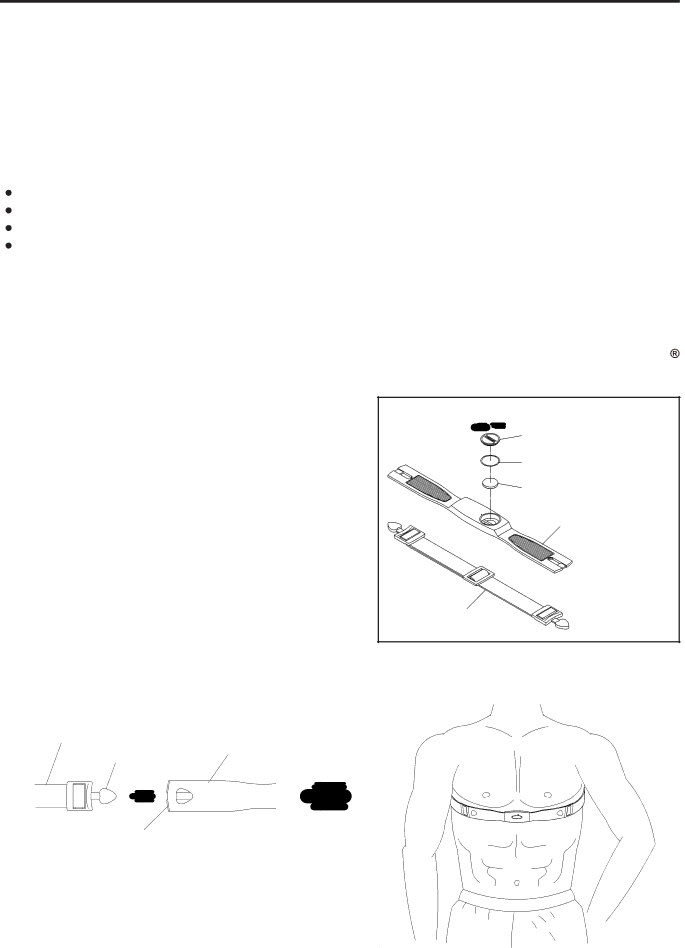
OPERATIONAL INSTRUCTIONS (continued)
The HEART RATE TRANSMITTER(97) worn around your chest sends your heart rate information to a receiver in your computer monitor so your heart rate is tracked while you exercise. This is the most reliable way to measure your heart rate to make sure you are exercising within your target heart rate zone so you get the most out of your workout time.
Using the Pulse Sensors
To get the most accurate reading from the Pulse Sensors, follow these steps.
Dry your hands to prevent slipping.
Make sure both hands are in contact with all four sensors (two in each hand). Grasp the sensors firmly.
Apply constant pressure to the sensors until you get a consistent reading on your computerized workout console screen.
Using the Heart Rate Transmitter Chest Strap
The HEART RATE TRANSMITTER(97) worn around the chest is powered by a 3V LITHIUM BATTERY (CR2032)(101) located in the center of the strap. Two electrodes on either side of the battery monitor your heartbeat, and an adjustable elastic strap holds the transmitter in place. The receiver built into the Avari GX8 picks up your heart rate from the HEART RATE TRANSMITTER(97) and displays it on the monitor during your workout.
To assemble the HEART RATE TRANSMITTER(97), insert the 3V LITHIUM BATTERY(CR2032)(101) as shown in the illustration, place the BATTERY RUBBER RING(99) and BATTERY COVER(100) properly into the case, then close the cover, tightening it with a coin or similar opener.
NOTE: Make sure to close the BATTERY COVER(100) very tightly as illustrated to prevent sweat and moisture from damaging the battery.
| close |
open | (100) Battery Cover |
| |
| (99) Battery Rubber Ring |
| (101) 3V Lithium Battery |
| (97) Heart Rate Transmitter |
(98) Elastic Strap
Attach the ELASTIC STRAP(98) by inserting the
(98) Elastic Strap Heart-shaped Tab
(97) Heart Rate Transmitter
To ensure a secure connection above, be sure that the front edge of the
NOTE: Apply water or conductive gel to moisten the ribbed rubber area covering the electrodes. This ribbed area must be wet and in contact with your chest skin to properly detect your heart rate.
15